On 16 November 2017 NZ’s Financial Markets Authority published a draft robo-advice exemption notice. FMA is seeking feedback on the notice and related documents by 15 December 2017. The exemption notice will be in force by early 2018 and will make it possible to deliver personalised financial advice online using algorithms (currently such advice must be delivered by humans). A robo-advice service provider can only rely on the exemption if approved by FMA- this requires the provider to meet licence-type standards.
I consider the draft notice and related documents below. I’ve provided background previously in blogs on the proposed roboadvice exemption and on FMA’s confirmation that it will authorise robo-advice via an exemption.
This is the first time FMA regulation has focused primarily on a technology as opposed to a particular sector or product. This may serve as a template for regulation of other new technologies by FMA, like financial services and products based on block-chain technology.
The Exemption
The notice provides for an exemption from the requirement in the Financial Advisers Act (FAA) that personalised financial advice must be provided by a human. To rely on the exemption a provider needs to be listed in the exemption itself. To become listed, the provider needs to satisfy FMA that the provider meets the minimum standards set out in the application guide (I discuss that in the next section).
The notice confirms that robo-advice will be permitted in relation to both financial advice and investment planning services (previously it was unclear whether investment planning services would be covered). An investment planning service designs a financial plan based on a clients’ current and future overall financial situation and investment goals. This will be helpful for investment-focused robo-advice services, as the dividing line between “financial advice” and “investment planning” is not always clear.
The notice does not exempt providers of discretionary investment management services (DIMS). This makes sense since investment management does not, in itself, involve providing “advice”. It’s possible now to provide on-line investment management services, though anyone doing so on a “discretionary” basis for retail clients needs a licence.
The notice confirms FMA’s earlier decision that it won’t impose caps on the value, or wide restrictions on the type, of financial products that a robo-advice service can advise on. In particular, it permits advice to be provided with respect to a wide range of common financial products (e.g. listed shares, KiwiSaver schemes), general and personal insurance, and consumer credit contracts (e.g. home loans). The fact that few people are accessing (or able to access) personalised advice on KiwiSaver schemes was a key driver for the exemption. So it’s likely that services offering advice on KiwiSaver schemes will be developed at an early stage. Early robo-advice services in relation to KiwiSaver may include SavvyKiwi and scheme providers (with respect to their own schemes only). Ilumony and Sharsies are examples of existing services in relation to investments generally that may develop robo-advice services.
While many existing robo-advice services overseas primarily focus on wealth management, more recently robo-advice services have moved into the insurance and home loan sectors, where financial advisers (brokers) are often used. So other early robo-advice services are likely to be provided by insurance companies and “mortgage brokers”. Trussle and Habito in the UK are examples of robo-advice in the mortgage broking sector. Product providers are likely to use robo-advice, but restricted to their own products.
A condition of the exemption is that specified information about the service must be disclosed to customers. FMA has noted that disclosure is very important but can be adapted in ways that enhance clients’ understanding e.g. by spreading disclosure across different webpages. Disclosure obligations include specifying the scope of the service- this links to an obligation in the application guide to have ways to “filter” clients for whom the service is not appropriate. A key change in relation to advice on insurance products and loans will be that detailed information on fees paid by third parties (typically the product providers and banks) to the robo-advice service must be disclosed- currently financial advisers are not required to provide that level of fee disclosure in relation to insurance and loans.
A specific disclosure obligation will be to state that the service “is not endorsed or approved by the Financial Markets Authority”. However, FMA itself refers to providers under the exemption being “approved” by FMA, and licence-type standards must be met by providers before they will be permitted to offer services under the exemption.
Providers will need to comply with other requirements in the FAA, including to provide services with the required level of care, diligence and skill, and to comply with relevant standards in the Code of Professional Conduct for Financial Advisers (Code). Relevant Code standards include placing the client’s interests first, managing conflicts of interest, communicating clearly, concisely, effectively, and ensuring clients can make informed decisions about the services. Providers also need to consider other legal obligations, including anti-money laundering obligations (particularly for investment advice) and broker/custodian obligations (e.g. if the service handles payments for clients).
Application Guide
The application guide follows the format of FMA’s application guides for FMA licences and includes many of the standards set for such licences. That includes that the directors and senior managers meet “character” and “capability” standards, and that the service meets specified standards in relation to staff, outsourcing, record keeping, IT systems & security, risk management and operational capability. Some key minimum standards specified for other licence types are absent, in particular those in relation to governance and financial resources. That will be helpful for start-up and early stage businesses. However, governance and financial management will still be important. The application guide sets a high bar– providers will need to embed compliance systems, and a compliance culture, within the business from the outset.
The guide focuses in particular on operational capability. This starts with the senior management team. While the guide recognises that key parts of the service can be outsourced, it requires senior managers to have the capability to assess outsourced providers and to monitor them, to ensure they provide services to an acceptable standard.
The default expectation is that the service will have at least one authorised financial adviser to help with ensuring the service is compliant. However, the service doesn’t need to if it can validate that other expertise will ensure the same outcomes can be achieved.
The guide sets out detailed expectations with respect to the technology. The IT systems must have all functionality necessary to provide the service in compliance with the FAA, the Code and other legal obligations. FMA states that it expects “rigorous testing and monitoring in the design phase, or after changes to the algorithm”. FMA acknowledges that what is required will vary significantly depending on the scale and sophistication of the service. So while robo-advice is based on technology, the overall effect of these requirements is that it may be harder to use a “lean startup”-type process, which relies on rapid product iteration, to develop and operate a robo-advice service. FMA will need to be satisfied that the provider is capable of providing a compliant service from the outset.
This blog is a brief summary only and should not be relied on as legal advice.




